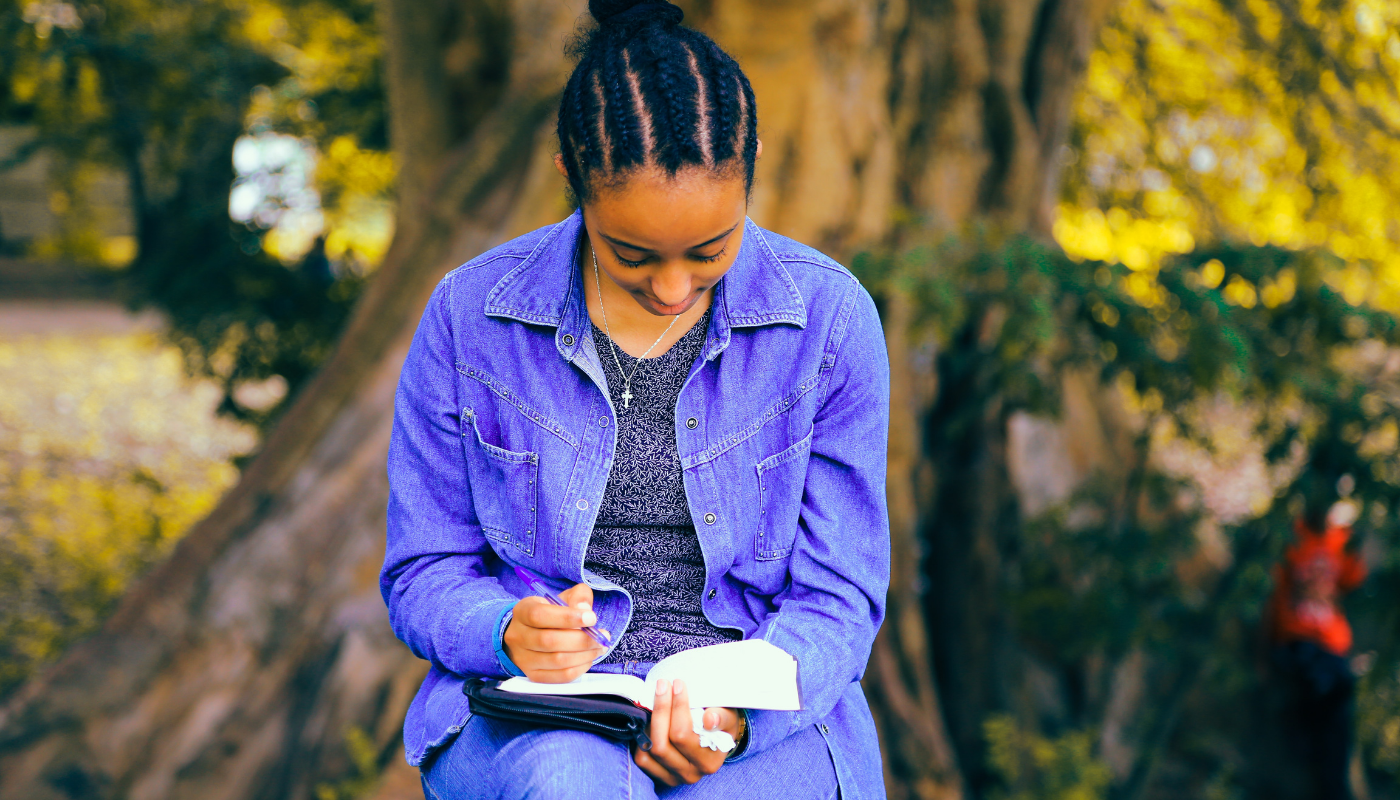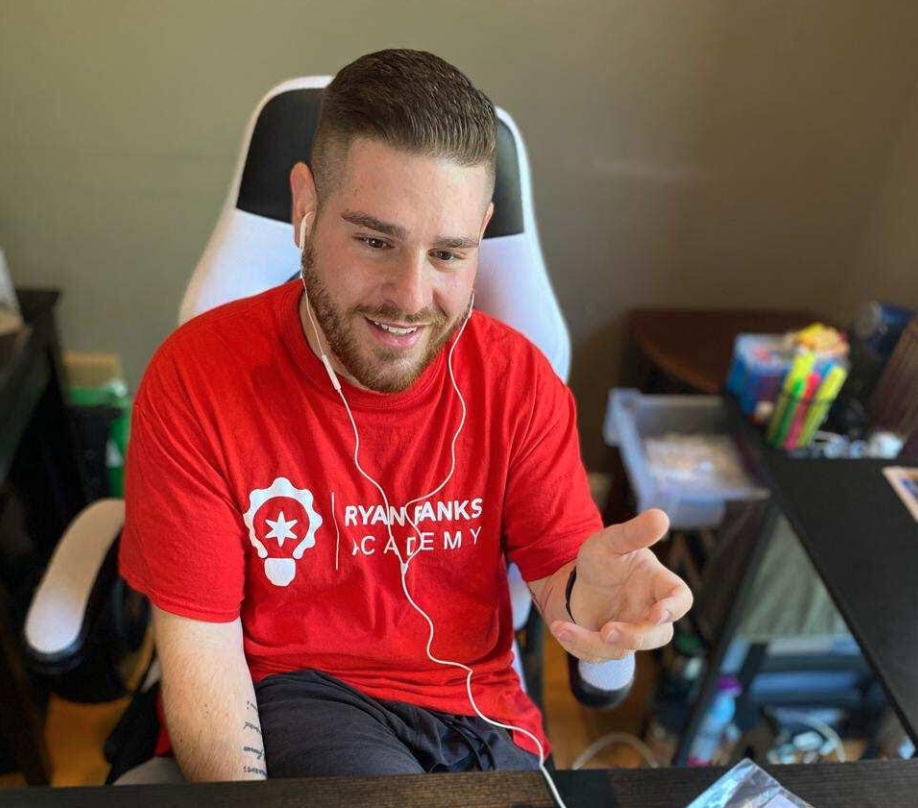
As Adam Mogilevsky researched potential projects to teach remotely last spring, any initial panic he felt was replaced by inspiration.
Mogilevsky, a seventh- through ninth-grade Humanities teacher at Ryan Banks Academy in Chicago, found himself drawn to a Summit Learning project called “Justices and Injustices.”
“Because of the pandemic I knew I had to get creative and think, ‘What’s going to pull them in, engage them and essentially inspire them to speak on things that touch their hearts?’” Mogilevsky said. “And luckily Summit had this unit that I hadn’t seen before. I read through it and was like, ‘Yes, we can definitely do this.’”
Mogilevsky was excited by the “Justices and Injustices” project because it accomplished his goal of providing equitable education virtually in an engaging way. He loved the idea of using examples of injustices from the past to show students the power of taking action to pursue justice in the present.
Students began the project by reading and exploring famous letters or speeches from people who stood up and fought for something they believed was unfair. That included a speech from Harriet Tubman, who escaped slavery and became a leading abolitionist and activist in the 1800s. They also engaged in a powerful discussion about imperialism after studying a letter that Queen Liliuokalani of Hawaii wrote to the U.S. government in 1897 to protest the annexation of Hawaii.
But rather than spend too much time focused on historical figures and issues, the project’s plans included ways for students to connect their research with relevant topics happening throughout the country today.
“More than ever before, our students need us to make sense of the world,” Mogilevsky said. “This content opens that door for them to see the bigger picture so they can address it in their generation.”

Students chose one current issue that they personally perceived to be an injustice and explored it further. Inspired by the historic letters they studied, the seventh-graders thoughtfully wrote a letter about their injustice and addressed it to someone in power in the hopes of making a positive difference.
The topics ranged from animal rights, LGBTQ equality, racism, and police brutality.
“It really stood out to me that the kids were really into it, which was good because we were concerned about what attendance would look like for student engagement,” Mogilevsky said. “So this really opened a door for some tough conversations to be had that were important.”
At the start of the project, Mogilevsky told his class that “history has always found itself repeating.” He was speaking generally, but he had a feeling that a potential issue could arise in the news given the heightened emotions that came from a country on lockdown.
“As we were proceeding in this pandemic, I thought something else would eventually occur and of course it did,” Mogilevsky said.
After George Floyd, a Black male, was killed by a white police officer in Minnesota in May, the voices of uprising against racism led to nationwide protests and powerful discussions in classrooms around equity and institutional oppression. That was especially the case for Mogilevsky’s students who were already focusing on the injustices of racism and police brutality for their project.
“A lot of kids were more willing and more open to address what they were facing today and some of the things they were seeing,” Mogilevsky said. “Ultimately, it gave them a deeper understanding of the systemic and institutional occurrences within our society. We can’t fix these issues unless we actively try to find the solution or the issue that created it.”
After writing letters to people in power – including Chicago Mayor Lori Lightfoot and Illinois state legislators – the students ended the project by presenting their injustice to their classmates.
Destini Chambers, a student who focused on injustices related to animal abuse, said a profound lesson she took away from the project was how shining a light on one injustice helps impact justice on a larger scale.
“The new information I learned was about how animal rights abuse impacts society as a whole,” Chambers said. “I enjoyed learning specifically about PETA and how we each play an individual role in ensuring animal rights.”
Along with raising awareness for a cause, students gained practical skills that Mogilevsky expects to pay dividends in the years to come. They learned how to write an argumentative claim and organize a letter to include proper transitions, cohesion, and structure.
“I would say this was a big hit because I saw them thinking things through and expanding upon topics that kids probably wouldn’t regularly discuss,” Mogilevsky said. “They did the work and they enjoyed it.”
The “Justices and Injustices” project is part of Summit Learning’s mission to provide culturally sustaining curriculum that reflects and honors the identities of students and the diversity of schools.
With Ryan Banks Academy remaining in distance learning to open the 2020-21 school year, Mogilevsky is eager to find another culturally-relevant project to engage his students and is hopeful more schools will do the same.
“If you are feeling uncomfortable about a topic that relates to diversity, equity, and inclusion – good,” Mogilevsky said. “Explore that uncomfortability, find the root of that issue, and resolve it. Your students need you to show up for them.
“Your content should make every student in that classroom feel seen, heard, supported, and uplifted.”

